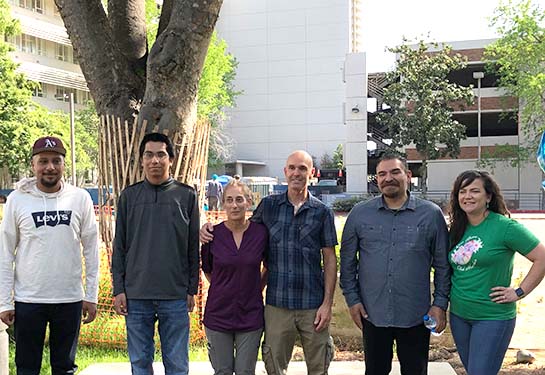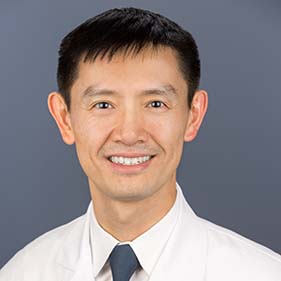Donors and recipients in six-way kidney transplant meet for first time
Single donor triggers multiple transplants via 'paired exchange' approach
The average time a person spends on the waiting list for a kidney transplant is two-and-a-half to three years. But thanks to one selfless individual willing to give life to another, three people in Sacramento did not have to endure that wait.
Donors and recipients who participated in a six-way ‘chain’ kidney transplant at UC Davis Medical Center had the opportunity to meet one another for the first time at a celebration held during National Donate Life Month.
When a living donor is unable to donate to an intended recipient due to blood or tissue type incompatibility, they have an option called paired kidney exchange. Paired exchange matches incompatible donor-recipient pairs with other pairs, and they exchange donors.
“Paired exchange has really changed the way kidney transplants work,” said Yihung Huang, associate clinical professor of Nephrology and official matchmaker of the paired kidney exchange program at UC Davis Health. “So many people need kidney transplants, but the pool of potential donors does not meet the need. It takes a special person to step forward and help someone live a better life.”
The process of coordinating their exchanges involved numerous health care professionals, including surgeons, nephrologists, anesthesiologists, operating room staff, nurses and a strong network of administrative support personnel.
So many people need kidney transplants, but the pool of potential donors does not meet the need. It takes a special person to step forward and help someone live a better life.” —Yihung Huang, transplant nephrologist
The reunion provided donors, recipients, friends, family members and the UC Davis Transplant Center team with the opportunity to meet and share their stories, their experiences and, most importantly, their gratitude.
Courtney Jordan Navarro, a donor, and recipient Daniel Cuevas attended with friends and family members; donor Hardy Rios Pino and Mario Pino, a recipient, the only siblings who participated in the transplants, attended together; and Dean Wallace, a donor, and his recipient wife Cheryl Wallace attended with their family.
“I'm normally the type of person to volunteer to be a donor, I'll give you the shirt off my back," said Cuevas. “I'm just so thankful to all of the donors. They saved my life and allowed me to have more time with my family. I am forever grateful."
Navarro was the altruistic donor who chose to participate in the kidney exchange program, which resulted in not one transplant candidate receiving a new organ, but three. As a donor with blood type O, she is what’s called a universal donor because she can donate blood to any person regardless of blood type. Instead of donating her kidney directly to Cuevas, she decided to help multiple recipients.
“One night at dinner my three-year-old son asked to see my scar,” recalled Navarro during the ceremony. “Seeing my scar, he asked, ‘Did they take out your kidney so someone else could live?’ Tearfully I just nodded to him that he was right. I think if more people knew the impact they could have on others, more people would volunteer to be a donor.”
In 2021, more than 24,000 kidney transplants renewed the lives of patients in the United States. However, approximately 90,000 more people are still waiting for lifesaving transplants. A kidney from a living donor offers patients an alternative to years of dialysis and time on the national transplant waiting list.
UC Davis Health has been a leader in the field of minimally invasive kidney recovery for living donation and was among the first programs on the West Coast to introduce this procedure in 1997. Recently, the Kidney Transplant Program at the Medical Center ranked No. 7 in the country for total volume of kidney transplants and No. 1 in California for total number of deceased donor kidney transplants.
In addition, the UC Davis transplant program recently became the 100th member of the National Kidney Registry. That new affiliation will expand the exchange pool and offer more hope for patients waiting for a new chance at life.


